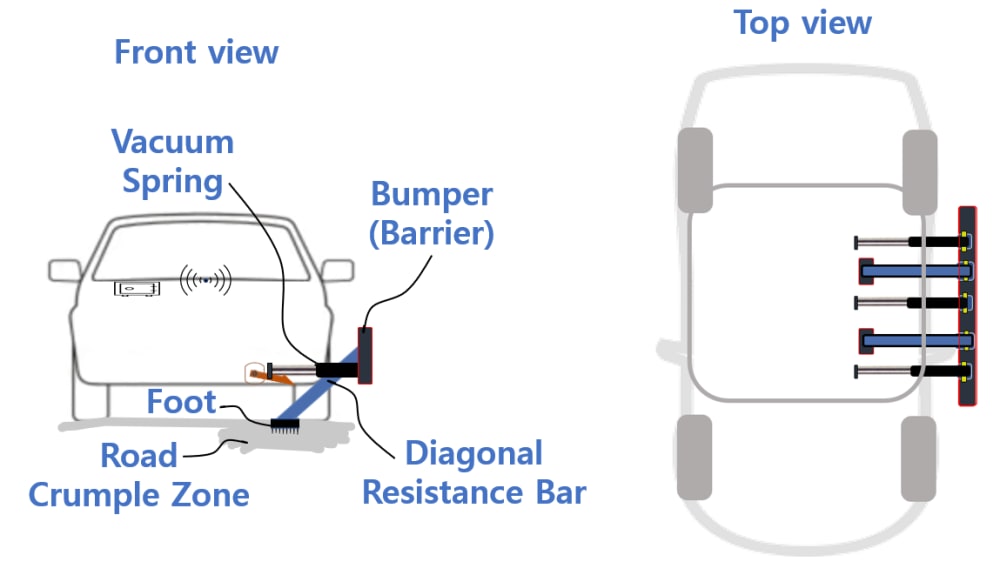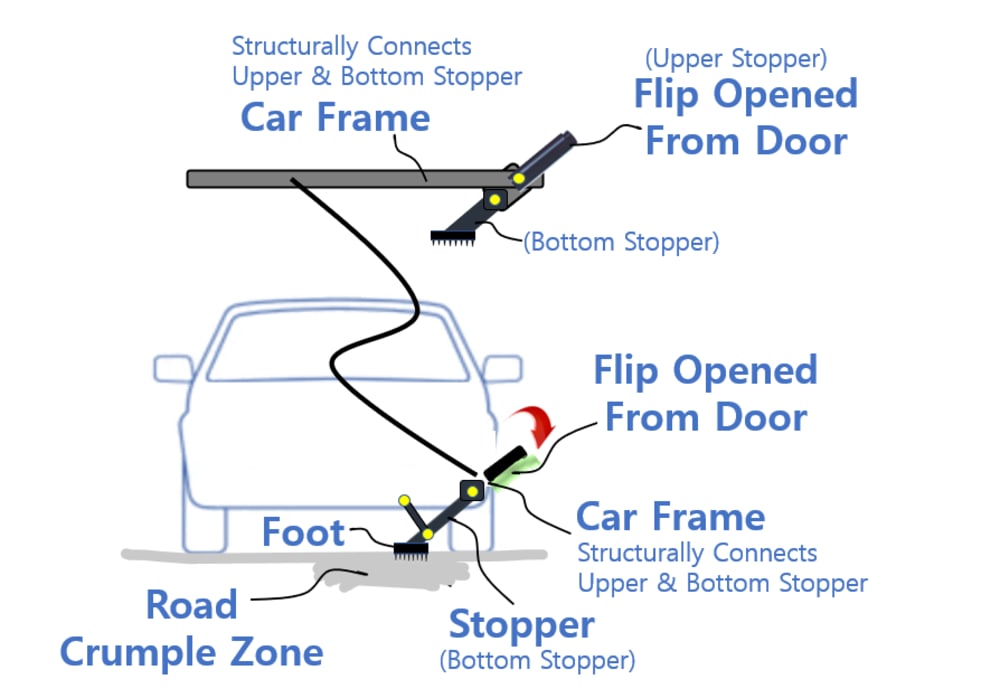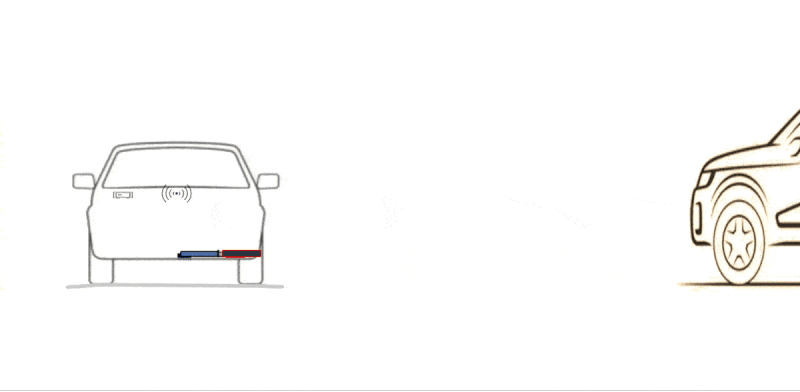Cars are equipped with Advanced Safety Technologies, and when the cars collide with objects these Safety Shock Damping Apparatuses come into action.
Shock Damping Starts from the Bumper then to the Body Frame(Crumple Zone), and then to the Airbags, and the Seatbelts.
But these accident protections mainly process the applied shocks within the car structure itself. And the rigidity of the car cage does protect the occupants from crushing in injury, but the whole applied shock is solely absorbed within the car structure itself. This can cause severe injury to occupants.
That is the critical safety limitation we face today!
If the “Collision Shock” can be reduced, it can save occupants from severe injuries.
To reduce the size of the Shock delivered to occupants, we must physically expand the shock-absorbing crumple zone. Pressure is defined as the force exerted on a surface divided by the area over which that force acts. So, we need more surfaces to absorb the shock.
However, in reality, it is impossible to create physical extra space out of the blue sky, so this invention adopts the ground(the road the car drives on) into the crumple zone.
The shock is the impact force by the colliding car that travels at a speed with a substantial amount of momentum. So, in order to resist this momentum, this invention uses the Diagonal Lateral Resistance which is one of the strongest geometric shapes known to mankind.
Using the Diagonal Bar (Resistance), place the upper part of the bar at the colliding impact point, and the lower part of the bar formed with spike foot lands on the ground for better road grip(friction).
When a car collides into the impact point, the part of incurred shock is first resisted by this Diagonal bar, then this bar re-directs the shock to the ground, and the ground absorbs the shock along with a said diagonal bar and simultaneously the reduced(another) part of the shock is delivered to the car and the occupants.
More particularly, this Resistance Diagonal Bar is “Retractablly” mounted on one side of a car, and when the Bar is deployed it fills in the space between the “Collision Impact Point” and the “Ground” with diagonal structure.
This “Shock-to-Ground Bumper (Diagonal Resistance Bar)” can reduce a significant amount of shock force delivered to occupants. This can particularly be very effective in reducing fatality in side-collision.
- The Diagonal Bar may consist of a mechanically assembled linkage system or the retractable unit itself.
- The Impact Point can be formed within the car frame or around the car externally.
- It can be deployed manually/mechanically or electronically or by ECU as Pre-Crash or On-Crash.
- 2nd Diagonal Bar can be retractably mounted on the upper part of the car and when deployed it forms one diagonal structure with the frame of a car and the 1st Diagonal Bar (Structurally connected in diagonal) deployed at the bottom.
- The bar/bars can be mounted inside of a car shell and the part of the shell can be expanded outwardly.
Video
Like this entry?
-
About the Entrant
- Name:Will Jeonghwan Kang
- Type of entry:individual
- Software used for this entry:Powerpoint with Drawings.
- Patent status:pending








